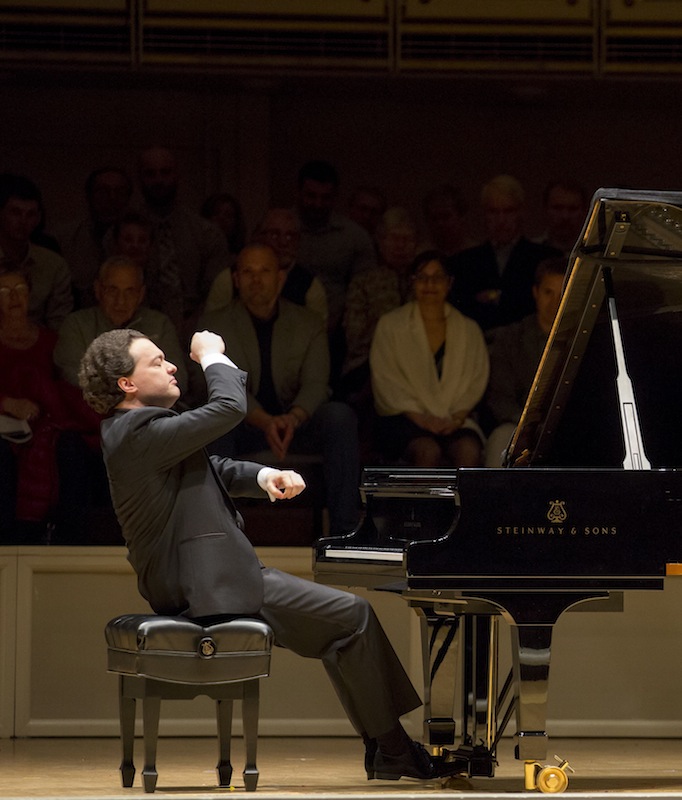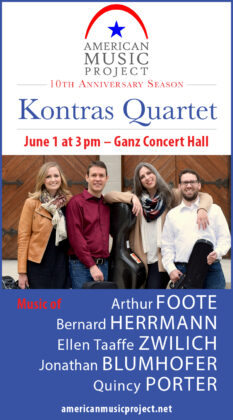Kissin’s distinctive mastery brings illumination on a rainy afternoon
There are innumerable gifted keyboard artists on the current scene. But there is only one Evgeny Kissin. And after hearing his mastery again Sunday afternoon at Symphony Center, it’s hard to feel that anyone else today can approach the Russian pianist in his chosen repertory.
Clearly, his many local fans felt the same way, with the crowd overflowing to significant onstage seating for a program that offered a virtual manifest of Kissin’s favored composers: Beethoven, Prokofiev, Liszt and Chopin.
The afternoon led off with sonatas of Beethoven and Prokofiev. The former’s Sonata No. 21, “Waldstein,” gets regular hearings but rarely with the brand of fresh discovery heard Sunday.
Kissin took a fleet tempo for the opening movement, aptly “Allegro con brio” while investing the main theme with an intimate fluidity. He built the increasing volume and weight in almost imperceptible gradations, yet each episode felt rich and rounded, as with the ruminative passage before the coda.
The hymn-like melody of the central movement was rendered with a rapt elevation. The first appearance of the finale’s celebrated theme went with a delicious poise, each reappearance with an aura of radiance surrounding it. The dominant light and joyful character was manifest with the breakout prestissimo final section perfectly clean and controlled at a blindingly fast tempo.
Prokofiev’s Sonata No. 4 is not among the composer’s most frequently heard works these days yet clearly deserves more advocacy. Subtitled “From Old Notebooks,” the thematic material was mined from an array of juvenilia, yet fashioned by the composer into a convincing three-movement form.
Here too Kissin was fully in synch with Prokofiev’s singular idiom, capturing the tripping angularity of the opening movement in a kind of acerbic storytelling style. The vast Andante proceeded from brooding bass rumbles to a dirge-like section and seismic upheaval. The pianist consistently balanced the jagged outbursts with moments of unsettled calm like a distant memory. The finale, cast in Prokofiev’s vein of aggressive joviality, was thrown off with bracing power and bravura.
The high point of any Kissin recital comes with Chopin and so it proved again with the Polish composer’s music making up nearly all of the second half.
Kissin’s mastery is so complete and his expression so natural in this music, that he doesn’t seem to be interpreting Chopin at all. His performances were supple, elegant, unsentimental, and suffused with poetry and nostalgia.
The first grouping of three Nocturnes was sublime. The Nocturne in B Flat minor, Op. 9, no. 1, went with a simple, shaded dignity, the ebb and flow superbly judged. The songful B major Nocturne (Op. 9, no. 3) was calibrated with gentle delicacy and an unerring rubato that made one hang on every phrase. Kissin made a small tone poem out of the somber Nocturne in C minor, Op. 48, no. 2, light and dark in fine alignment with a powerful eruption in the central section.
A set of six Mazurkas was equally exquisite, flexible with artfully nuanced rhythmic inflection. A playful Mazurka in E and a finely chiseled Mazurka in A minor were among the highlights.
Kissin’s unerring taste can even make the theatrical glitter of Liszt sound like a masterpiece. His program closed with the Hungarian Rhapsody No. 15 (“Rakoci March”), the frenzied hand-crossing and myriad pyrotechnical hurdles all surmounted with Olympian ease and exhilarating panache.
The clamorous ovations brought the pianist back for characteristic courtly bows and three encores.
More Chopin was up first with an intimate and introspective rendering of the Nocturne in F-sharp Minor, Op. 48, no. 2, the pianist showing impressive concentration despite the array of loud coughs. Liszt’s Paganini Etude No. 5, “La chasse” followed in a witty and agile rendering. Kissin closed with a jaunty bravura account of the March from Prokofiev’s Love for Three Oranges. Despite rhythmic clapping from the faithfully assembled, there was no more music, though the audience was sent out into the torrential downpour fortified by experiencing the extraordinary artistry of one of the greatest musicians of our day.
___________
It’s impressive how electronic devices in the hands of clueless people continue to open up new and unexplored areas of distracting concert behavior. In the opening minutes of Sunday’s recital, a woman sitting in the first row of the darkened stage seating provided a brief ad libitum light-show accompaniment to Kissin’s Beethoven, as her silenced phone flashed a call brightly in the darkness.
To their credit, Orchestra Hall staff were on the issue at the first opportunity, and the woman, likely abashed, left at intermission.
Posted in Performances






Posted Apr 20, 2015 at 7:44 pm by Alexa
Did no one else find that Kissin’s tempo slowed at times to a nearly minimally conscious pace? The second (Introduzione) portion of Waldstein lost it’s sense of direction for it. Even the Nocturnes, though beautifully curated, were perhaps overly pulled, stretched to the point of testing their structural integrity.
Posted Apr 20, 2015 at 9:34 pm by Yuan
The coughs yesterday came at the quietest passages during the second half and were definitely annoying.